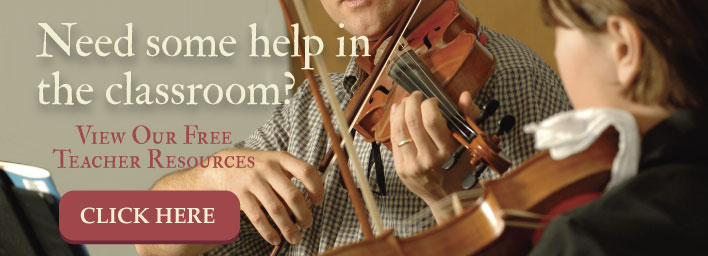
With all of the new forms of technology available today, it’s more difficult than ever to compete for the attention and interest of students. Therefore, music instructors need inventive ways to encourage participation in their classes, courses, and schools. Music education is incredibly influential in developing strong academic performances and problem solving skills, but these advantages have only been proven during the last few years, and many parents are unaware of the positive cognitive influence music provides.
Therefore, educators who desire to increase music school participation and look to build their own music schools need to focus on educating their general communities about the benefits of music education. Yet, building a music school involves more than simply spreading the word. Educators need to both employ actionable methods that rouse the interests of their prospective students and design music course activities to maintain the enthusiasm of current enrollees. This list of proven techniques can assist your endeavors.
Non-Profit Status
For U.S. residents, this is the most important step for building your music school. As an educational instructor, the grant opportunities and other support programs available for non-profit entities is extensive. Not only does the federal government provide millions of dollars each year, many private companies in the private sector willingly support musical education such as VH1’s Save the Music Foundation. Operating a non-profit doesn’t mean that you work for free, but it does enable you to receive assistance that is denied traditional business models.
And, at this point, you must develop a business plan that outlines your goals and ambitions for the school’s success.
Garnering Community Support
As was previously mentioned, the more you promote the knowledge concerning the benefits of music education, the better. Building a reputation for excellence will follow, but the next step involves soliciting community support. This can be accomplished through various channels. For example, speak with your local Chamber of Commerce about the programs and groups they organize. Find out if you can schedule a speaking engagement that will present your vision to influential community leaders and emphasize the scientific breakthroughs that have been recently discovered concerning music instruction. Rotary clubs and other civic groups also offer a great avenue for spreading information. You can make contact with local businesses and arrange for demonstrations.
These types of activities just basically require time; however, it’s a good idea to invest in some literature like cards, flyers and brochures so that you can leave something with your audience.
Space and Supplies
Building your music school involves finding and occupying the space you need to grow and developing your stock, storage and instruction areas. With your non-profit status in the U.S., you are able to view and bid on government properties, including foreclosures. However, depending on your location, search for a facility that will offer plenty of space for the instruction area, perhaps a small section for lab work, and space for storing instruments and cases. Good ventilation and acoustical properties are a must, but it’s also a good idea to have a sink available for mouthpiece and hand washing.
If funds are limited, consider approaching an established group to request the use of their facility. The group will earn rental fees, and you’ll get the benefit of a temporary establishment that is already up to codes. Once your enrollee numbers increase, you can begin the process of finding a permanent location.
Some other items to purchase include:
- Music Stands—find bargain priced items online, or visit local auctions for chairs and other furnishings
- Instrument supplies—reeds, rosin, cork grease, etc.
- Method/instructional books, music, and various other educational media
Constant Marketing
The best way to advertise your music school is to keep your students excited about each class. By making it a fun atmosphere, your students will want to brag about their experiences to others. And although many of your students will be solicited in this way, there are other things that you can do to ensure that your school remains an important part of your community for many years to come.
Utilize social media to keep students and the community updated about forthcoming concerts, recitals, and other public appearances. And, make sure that try to schedule these types of events seasonally. You may even want to participate in organized festivals or develop a music appreciation week at your local library. Whatever you do, make sure to keep people informed about the dates, times, and locations through social media. Similar ideas include writing about the benefits of music instruction in local school newspapers, or contacting home school groups about what your school offers.
Building a music school from scratch is an arduous undertaking, but it can be accomplished with the right plan. You can find out more about starting a non-profit entity by contacting the Internal Revenue Service.


